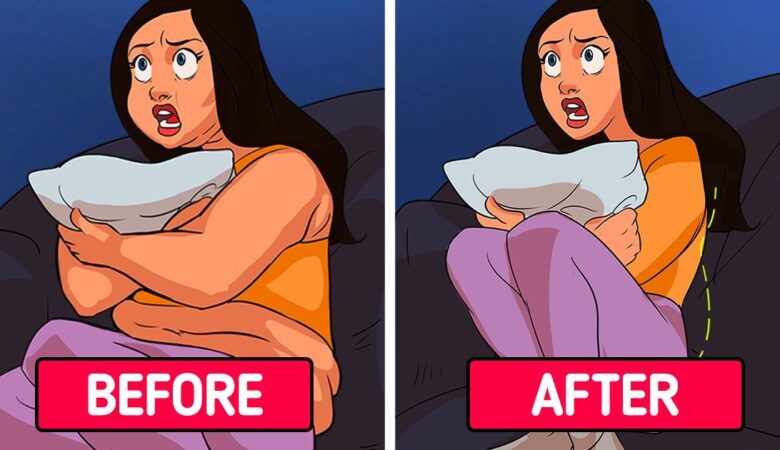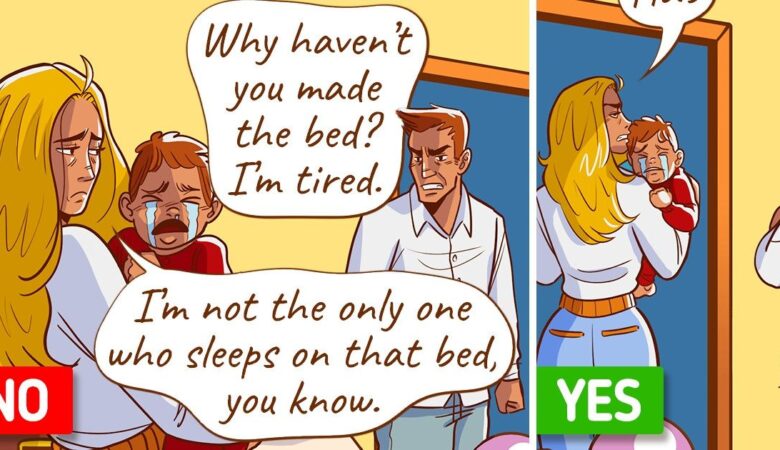Stories about couples’ infidelity told by a famous movie director, best-selling author, or neighbor are infinite. What makes a person behave this way? Who to blame? We often ask these questions when we learn of another betrayal.
We gathered the opinions of psychologists and the results of scientific experiments that speak of circumstances that increase the risk of infidelity. Read the article and you may have fewer questions on this topic.
7. Absence Of Emotional Intimacy

The inability to have honest conversations with a partner and the lack of support lead women and men to cheat. There is a stereotype that the main motive of a man is sex.
But in his book The Truth About Cheating, marriage counselor Gary Neuman says that 47% of his male clients who cheated talked about a lack of emotional intimacy.
The situation is more difficult because men do not like to show their feelings and women may not realize that their loved one needs support. She may realize this later or even ignore it.
6. Influence Of Experience And Society

If a person has experienced infidelity in their previous relationship, there is a high probability that they will do the same with a new partner.
It is interesting that the people around them also influence the tendency to infidelity.
In an anonymous survey, more than 75% of men who committed adultery indicated that their friends also cheated on their wives.
5. Boring Intimate Relationship

The lack of bright new emotions in someone’s sex life is the reason why 70% of men and 49% of women choose to cheat. I
t should be noted that previously respondents also said their relationships were generally happy – no major scandals and other disappointing questions.
4. Vulnerability Because Of The Quarter-life Crisis

We all have a moment in life when we begin to sum up the overall results of the last few years.
Some people come to the conclusion that all is well and others begin to experience the so-called quarter-life crisis and may become vulnerable to temptation.
Research shows that it generally occurs at age 29, 39, or 49, just before the new decade.
Of course, this does not mean that a good family man and a loving husband suddenly cheat as soon as they turn 39. A person’s age is just one factor that can worsen other circumstances that make people cheat.
3. Excessive Interest In Social Networks

In couples where one of the partners spends a lot of time on Twitter or other social networks, the risk of infidelity increases.
Because social media addicts can easily get up early or go to bed later, leaving their loved ones alone to scroll through their feeds.
Virtual relationships can generate discussions and virtual communication can become real. Both factors create a favorable environment for adultery.
2. Work And Business Trips

According to one of the surveys on the subject, more than 1/3 of cheating men are serious businessmen who used to betray their beloved women during business trips.
And 13% of women had an affair at work. The chance of cheating at work increases between 6 and 9 years of marriage: these years are the most fragile and often require a lot of effort.
1. Lack Of Oxytocin
Oxytocin also called the hug hormone (it increases when we hug and kiss), plays an important role in creating and maintaining trust in a relationship.
Scientists believe that a lack of this hormone can become a trigger when it comes to cheating.
In one experiment, several married men received injections of oxytocin, met an attractive woman, and said they could get as close to her as they wanted.
The participants who received a dose of the hormone insisted on a greater distance between themselves and the woman than those who received the placebo.
Experts indicate that it is usually the set of factors listed that becomes the reason for the cheat, not just one of them.
Also, some couples do not separate after that and try to save the marriage. And some marriages get even stronger.
What do you think? Is there a possible reason to forgive infidelity?









Leave a Reply